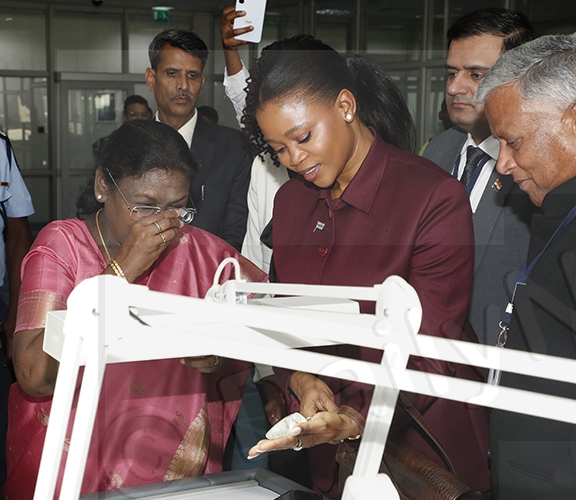Address bottlenecks to attain digital economy- official
28 Jul 2022
If implemented successfully, the ambitious action plan aimed at preparing the nation for the Fourth Industrial Revolution (4IR) could see Botswana become a digital leader, Senior Digital Development Specialist of World Bank Group, Ms Paul Seaden has said.
Speaking in an interview, Ms Seaden said the digital economy in Botswana relied on relatively strong individual strategies, policies and regulations; hence SmartBots, a digital strategy from 2020 designed to alleviate bottlenecks through a whole-of-government approach.
“We realised that previous attempts to boost digital transformation highlighted cross-cutting challenges that ought to be addressed first,” she said.
She said while two-thirds of Botswana’s population were within reach of a mobile broadband network and mobile broadband adoption remained relatively low at 43 per cent.
She noted that the quality of connectivity offered was often only suitable for basic applications, adding that several factors were driving this usage gap. These, she said included among others the affordability of services and devices, relevance of digital content, and the skills required to use services.
Ms Seaden confirmed that these were further compounded by structural constraints to the broadband value chain, as the national backbone network connecting cities, major towns also connected villages which in the process may overwhelm the network infrastructure.
In addition, she said network gaps connecting rural villages and localities continued to exist and further said Botswana’s landlocked status meant that it depended on neighbours for access to undersea cable capacity.” Ms Seaden stated that the related transit costs would then passed on to consumers who ended up paying relatively high broadband prices.
“Although Botswana has developed a well-articulated national broadband strategy to address constraints to the growth of its digital infrastructure, it has so far lacked adequate coordination and implementation mechanisms,” she said.
Meanwhile, Ms Seaden said Botswana had made significant strides in laying the foundational financial infrastructure to support the evolution of Digital Financial Services (DFS). About 42 per cent of adults reported having made or received a digital payment in the previous 12 months (2017), she said.
This, she said was ahead of the regional average of 34 per cent, and comparator countries like Lesotho and Malawi were at 38 and 28 per cent respectively. “Digital payments are driving the growth of DFS through digital banking solutions, card-based transactions, and mobile wallet transfers,” she said.
She said to meet the growing demand, banks and other DFS providers were ramping up investments in digital channels, and novel solutions were emerging. ENDS
Source : BOPA
Author : Marvin Motlhabane
Location : GABORONE
Event : INTERVIEW
Date : 28 Jul 2022





